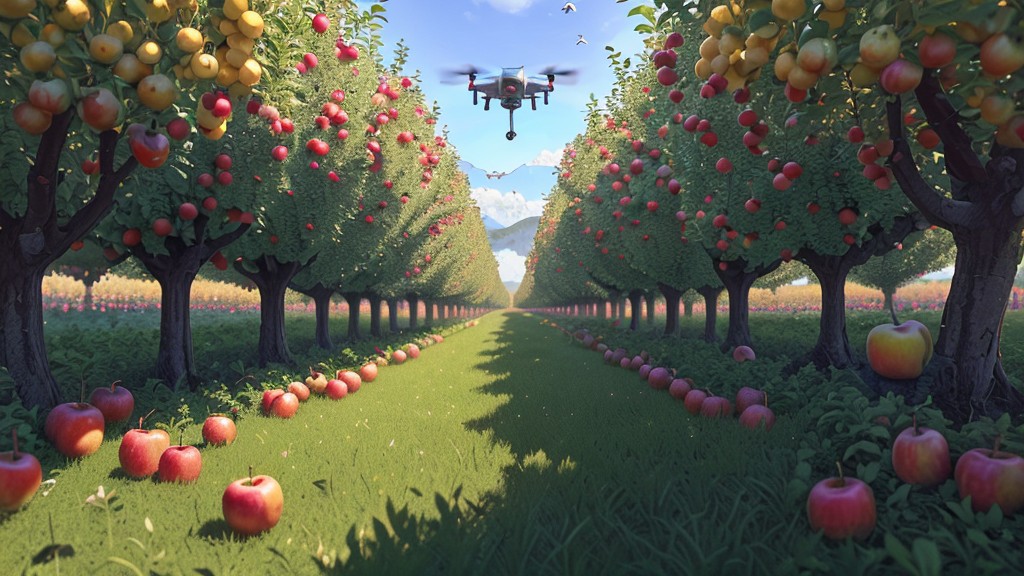
AI in Agriculture: The Unprecedented Blend Revolutionizing Farming

AI in Agriculture: The Unprecedented Blend Revolutionizing Farming
As we witness the dawn of the fourth industrial revolution, it’s undeniable that technology continues to bring immense changes across all sectors. A prime example is the remarkable blend of artificial intelligence (AI) with agriculture. This game-changing combination is not just reshaping how we grow our food but also promising an era of sustainable and efficient farming.
Imagine drones, the same technology that delivers your Amazon packages, now darting across the sky, analyzing apple orchards. Equipped with advanced AI image recognition models, these smart drones can evaluate the ripeness and sugar content of apples using multispectral color grading. With an unmatched level of precision, they can pick only the ripest fruits, minimizing waste and enhancing overall productivity.
But this revolutionary blend of AI and agriculture extends beyond smart drones. It encompasses a wide range of sophisticated techniques and tools, such as AI-powered precision farming and crop monitoring, autonomous farming equipment, and advanced data analytics. Let’s delve into these transformative processes and explore the future of farming.
Navigating the Future with AI-Powered Precision Farming
Precision farming is rapidly becoming a core aspect of modern agriculture. It capitalizes on real-time data from sensors, satellites, and weather stations. AI then analyzes this information and makes data-driven decisions to optimize resource allocation, such as water, fertilizers, and pesticides. This approach reduces waste, maximizes yields, and minimizes environmental impact, making farming more sustainable.
Crop Monitoring – The New Vanguard of Agricultural Health
Crop monitoring is another area where AI has shown significant potential. Using AI algorithms and computer vision, farmers can identify diseases, detect pests, and assess nutrient deficiencies early on. Early detection allows farmers to take timely action, minimizing crop losses and ensuring higher-quality yields.
The Rise of Autonomous Farming Equipment
With AI driving the development of autonomous farming equipment, the reliance on manual labor is being substantially reduced. These robots and machines can perform tasks like seeding, harvesting, and weed control autonomously. By doing so, they optimize labor utilization, reduce operational costs, and improve overall farm productivity.
The Sky is the Limit with AI-Powered Drones
Equipped with advanced AI technologies, drones are bringing a revolution in agriculture. They can capture high-resolution images and collect data on crop health, soil moisture, and field conditions. This rapid and accurate data collection allows farmers to identify issues early, optimize treatments, and increase overall crop yield.
Data Analytics – Turning Data into Actionable Insights
Finally, let’s not forget the essential role that AI-driven data analytics play in modern agriculture. By harnessing the power of data analytics, farmers can optimize planting schedules, irrigation strategies, and harvest planning, ultimately enhancing the overall farm efficiency.
As we continue to explore the captivating fusion of AI and agriculture, it’s evident that the future holds even more revolutionary changes for this sector. This harmonious blend promises not only to feed a rapidly growing population sustainably but also to usher us into an era of smarter, efficient, and eco-friendly farming.
So, let’s embrace the power of AI in agriculture and join the movement towards a more productive, sustainable, and technologically advanced farming industry. Are you ready to behold the future of farming?




